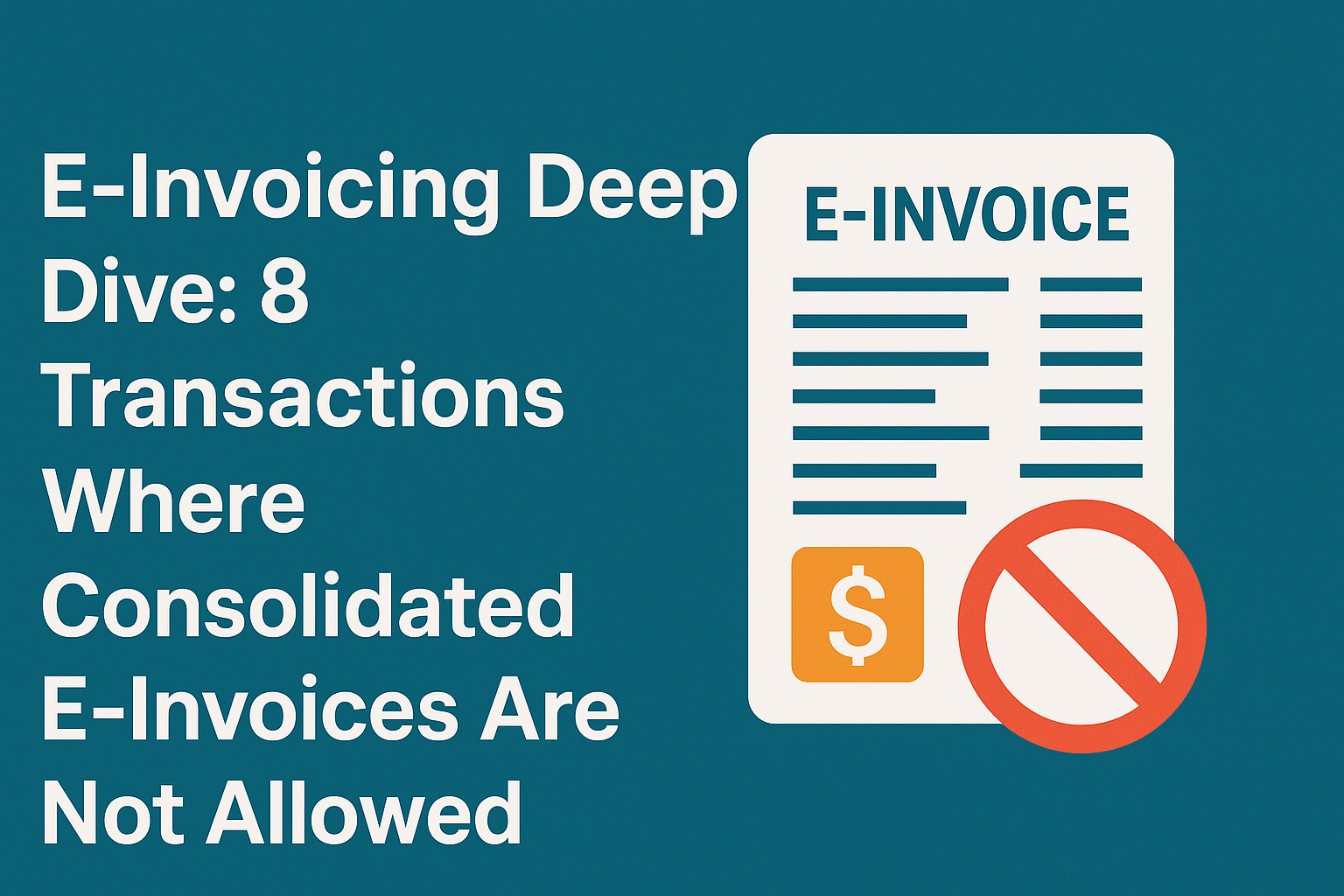While the e-invoicing system offers conveniences like issuing a “consolidated e-invoice” to summarize multiple transactions into one, this is not a universal rule. The Inland Revenue Board of Malaysia (LHDN) has specified certain industries and transaction types where consolidation is strictly prohibited.
For these specific cases, businesses are required to issue a separate e-invoice for each individual transaction. This means you must obtain the buyer’s full details (Name, TIN, Address, etc.) for every single sale. Understanding these exceptions is critical to ensure your business remains fully compliant.
Let’s break down the eight specific scenarios where you must issue a per-transaction e-invoice, based on the latest guidelines.
The 8 Scenarios Where Consolidation is Prohibited
1. Automotive Sales
- The Rule: The sale of any type of motor vehicle requires a separate e-invoice for each unit sold.
- Example: If your car dealership sells three different cars to three different customers in a day, you must generate three separate e-invoices, one for each vehicle sale.
2. Aviation Services
- The Rule: The sale of flight tickets and the provision of private charter services are not allowed to be consolidated.
- Example: An airline must issue an individual e-invoice for each flight ticket purchased by a customer.
3. Luxury Goods & Jewellery
- The Rule: The sale of luxury items like jewellery requires a per-transaction e-invoice.
- Note: The implementation details for this category are still being finalized by the authorities and may be subject to further updates.
4. Construction Contracts
- The Rule: Payments related to a construction contractor undertaking work as defined in the Construction Contracts Regulations 2007 cannot be consolidated.
- Example: A developer making a progress payment to their main contractor for a specific construction milestone must issue a standard e-invoice for that single payment.
5. Wholesale & Retail of Construction Materials
- The Rule: Similar to construction contracts, the sale of construction materials of any type, size, or nature is not allowed to be consolidated.
- Example: A hardware supplier selling a large batch of cement and steel to a construction company must issue a separate e-invoice for that specific sale.
6. Licensed Betting and Gaming Payouts
- The Rule: Any payout to winners from licensed betting and gaming activities requires a separate e-invoice.
- Note: LHDN has clarified that winnings from casino activities and gaming machines are temporarily exempted from the e-invoice requirement until further notice.
7. Payments to Agents, Dealers, or Distributors
- The Rule: This applies to payments made by a company to its agents, dealers, or distributors, as defined under Section 107D of the Income Tax Act 1967 (the 2% withholding tax rule). These payments cannot be consolidated into a monthly e-invoice.
- Example: A principal company paying out monthly commissions to multiple agents must issue a separate self-billed e-invoice for each agent’s total commission for that month (consolidation is not allowed across different agents, only for multiple transactions to the same agent, as per our previous article).
8. NEW – High-Value Transactions (Effective Jan 1, 2026)
- The Rule: This is a crucial upcoming change. Starting from January 1, 2026, any single transaction with a value exceeding RM10,000 will not be allowed to be included in a consolidated e-invoice, regardless of the industry.
- Impact: This future rule will affect all businesses and will require careful monitoring of individual transaction values.
Why These Restrictions?
The likely rationale behind these rules is that these transactions are typically of high value and/or involve assets where a clear, individual record of the transaction and ownership is critical for tax assessment and verification purposes.
Is Your Invoicing Process Compliant?
The e-invoicing landscape is filled with specific rules that can be easy to miss. An incorrect invoicing process—such as consolidating when it’s not allowed—can lead to compliance issues and operational headaches.
At SMONE, we help businesses design and implement invoicing workflows that are fully compliant with all LHDN e-invoicing guidelines, including these specific industry prohibitions.
Contact us today to ensure your invoicing system is correctly configured from the start.
(Disclaimer)
This article is for general informational purposes. It does not constitute legal or tax advice. Please refer to the latest official guidelines from LHDN for complete information.


